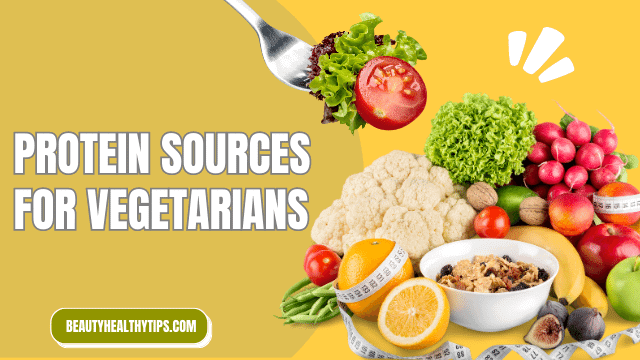When it comes to meeting your protein needs on a vegetarian diet, the choices can sometimes feel limited. But fear not! There are plenty of plant-based protein sources that can help you meet your daily requirements. In this article, we’ll take a look at some of the best protein sources for vegetarians and provide tips on how to incorporate them into your diet.
Understanding Protein Needs for Vegetarians
Table of Contents
Before we dive into the specific sources of protein for vegetarians, it’s important to understand how much protein you need. According to the CDC, the recommended daily allowance (RDA) for protein is 0.36 grams per pound of body weight. For example, a person who weighs 150 pounds would need approximately 54 grams of protein per day.
Best Plant-Based Protein Sources
- Beans and Legumes: Beans and legumes are a great source of protein for vegetarians. One cup of cooked beans or lentils contains approximately 15-18 grams of protein. Some of the best options include black beans, chickpeas, lentils, and kidney beans.
- Tofu and Tempeh: Tofu and tempeh are both made from soybeans and are excellent sources of protein. One serving of tofu (3.5 ounces) contains approximately 8 grams of protein, while one serving of tempeh (3.5 ounces) contains approximately 18 grams of protein.
- Quinoa: Quinoa is a versatile grain that is high in protein. One cup of cooked quinoa contains approximately 8 grams of protein. It can be used in a variety of dishes, including salads and stir-fries.
- Nuts and Seeds: Nuts and seeds are a great source of protein and healthy fats. One ounce of almonds contains approximately 6 grams of protein, while one ounce of sunflower seeds contains approximately 5.5 grams of protein.
- Greek Yogurt: Greek yogurt is a dairy product that is high in protein. One cup of plain Greek yogurt contains approximately 23 grams of protein. It can be used as a breakfast food or as a base for dips and sauces.
- Vegetables: While vegetables are not as high in protein as some other sources, they can still contribute to your daily intake. Some of the best options include broccoli, spinach, Brussels sprouts, and asparagus.
Tips for Incorporating Plant-Based Protein into Your Diet
- Experiment with different types of beans and legumes. Try making bean soups, chili, or hummus.
- Use tofu or tempeh in stir-fries or curries for a protein boost.
- Add quinoa to salads or use it as a side dish instead of rice.
- Snack on nuts or seeds for a quick protein boost.
- Use Greek yogurt as a base for dips and sauces or as a replacement for sour cream.
Conclusion
Meeting your protein needs on a vegetarian diet is easy when you know where to look. By incorporating a variety of plant-based protein sources into your diet, you can ensure that you are getting all of the essential amino acids your body needs to function properly.
FAQs
- Can you get enough protein on a vegetarian diet? Yes, it is possible to get enough protein on a vegetarian diet by incorporating a variety of plant-based protein sources.
- What are some other vegetarian protein sources? Other vegetarian protein sources include whole grains, tofu, tempeh, and dairy products.
- Can you build muscle on a vegetarian diet? Yes, it is possible to build muscle on a vegetarian diet by consuming enough protein and engaging in strength training exercises.











